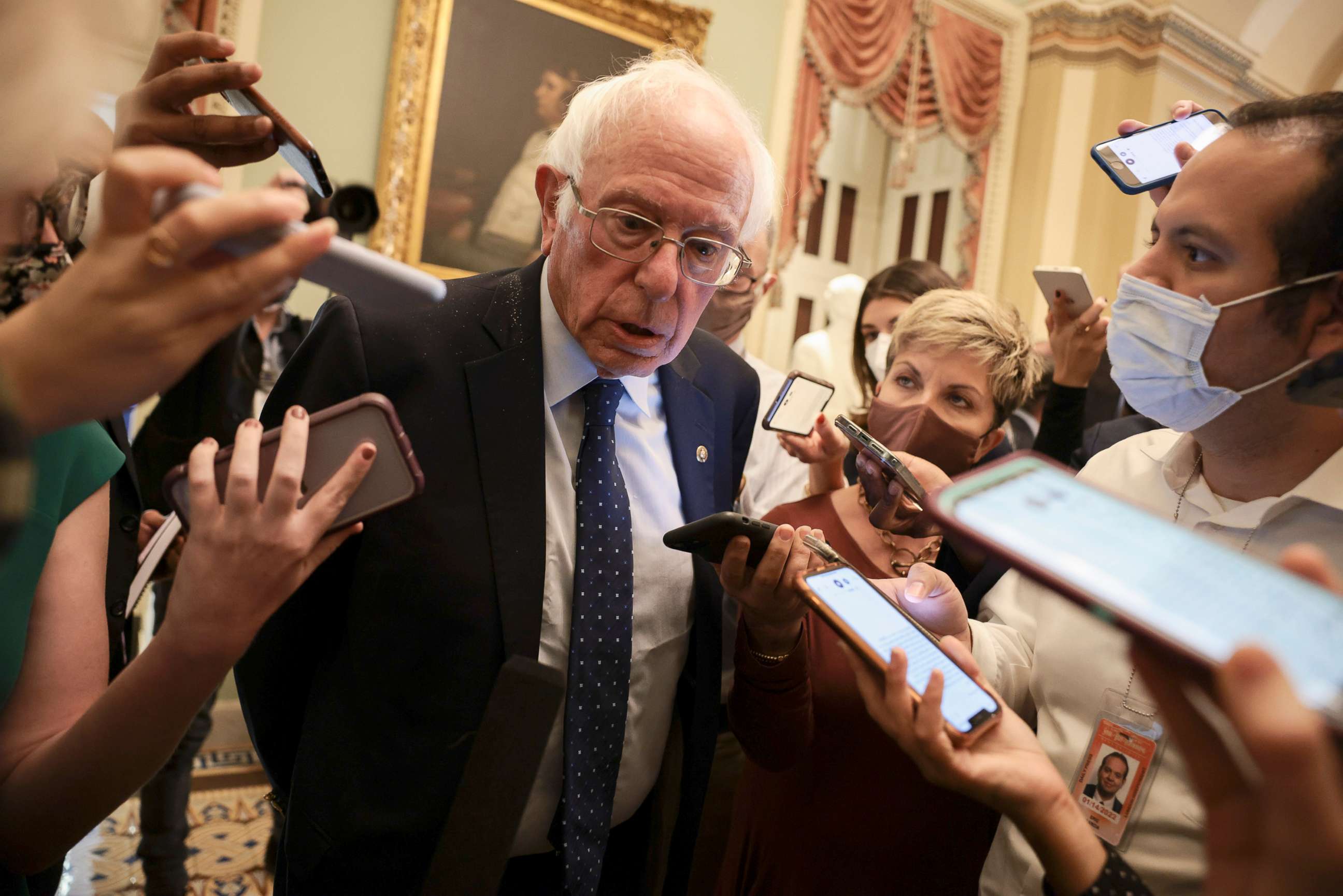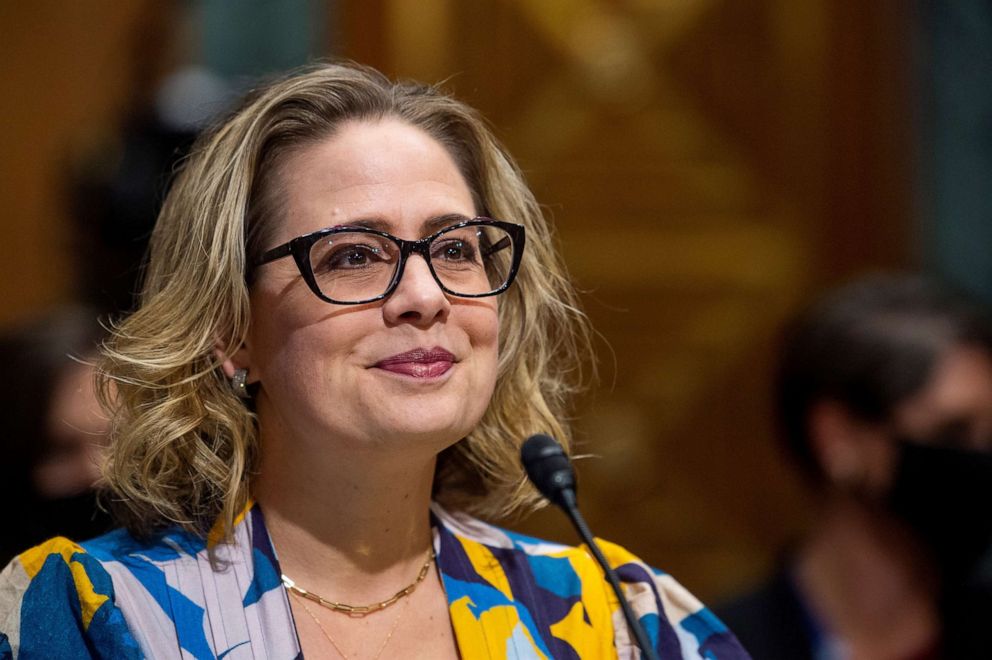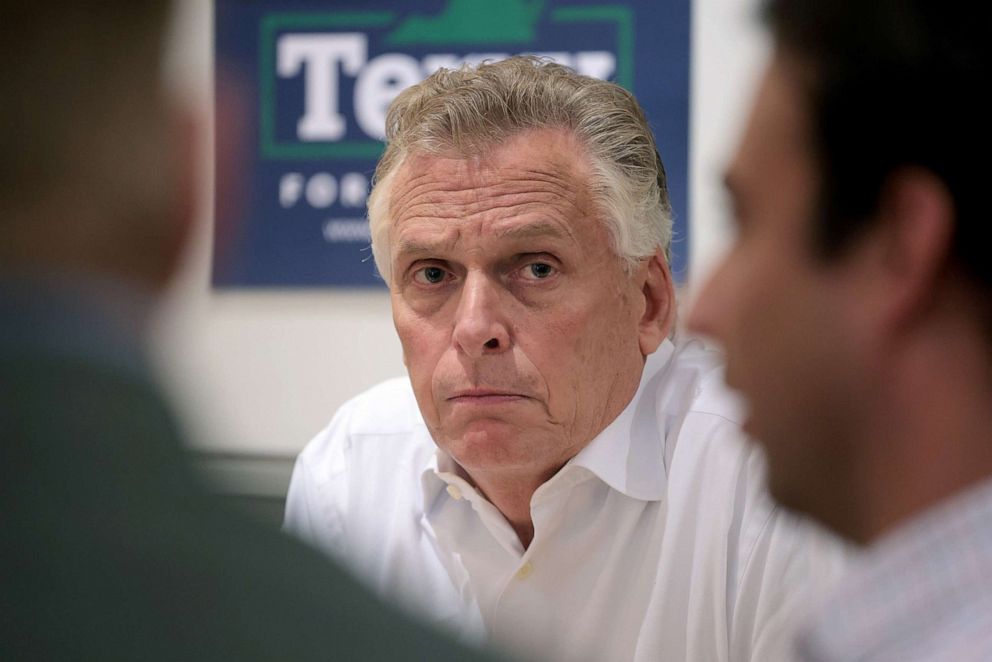Progressive setbacks pile up even as deals appear closer: The Note
There's still an awful lot of talk about what's not happening.
The TAKE with Rick Klein
For a party that looks to be a good measure closer to passing a historic package of programs, there's an awful lot of talk about what's not happening as opposed to what still might.
Free community college and voting rights reform are the latest big-ticket items to reportedly join a list of no-go policies that already included policing reform, an immigration overhaul and gun legislation.
Climate change, Medicare expansions and family leave proposals are in the process of being significantly scaled back, meanwhile, as part of the drive to get the social-spending package under $2 trillion.
Frustrations on the left have brought images outside the White House of celebrity arrests in a voting rights protest, and now a hunger strike led by the Sunrise Movement aimed at driving action on climate change.

It comes as President Joe Biden travels outside of Washington to build momentum for an infrastructure bill that has long been stalled, and for the Democrat-only bill that's still being written and pared back.
"We're going to change the nation in a big way," the president said, striking a note of optimism in his hometown of Scranton, Pennsylvania. "The fact is, there's so much at stake."
That hasn't been disputed among Democrats. Moderates and progressives appear closer to putting aside their differences in the interest of passing bills well into the trillions of dollars, with a general sense that the bills will do more rather than less -- albeit for shorter periods of time.
It makes for a strange moment for Democrats amid angst over the direction of the Biden agenda and whether it can be sold successfully to voters. Once again, expectations appear far ahead of realities.
The RUNDOWN with Alisa Wiersema
For the second time this year, Senate Republicans blocked the advancement of federal voting rights legislation. The move revived yet another legislative stalemate along party lines, while also reigniting intraparty divisions among Democrats over ending the filibuster.
On Wednesday, all Senate Republicans voted against beginning a debate on the Freedom to Vote Act, which left Democrats 10 votes short of the needed amount to proceed with addressing the legislation.
As reported by ABC News' Trish Turner, Sen. Angus King of Maine, who sponsored the bill, told reporters that the only option for progress after the vote fails is to alter the Senate's filibuster rule that requires 60 votes to pass most legislation but also imposes no requirement on the 41 senators who are in opposition. But to change the filibuster, all 50 Senate Democrats would need to present a united front. That goal remains unreachable given Sens. Joe Manchin and Kyrsten Sinema's opposition to ending the rule.

"We're not going to give up, we're not deterred but there's still a lot of work to do. And I think it's really a sad day," said Vice President Kamala Harris following the vote. Still, it remains unclear what Democrats and the White House can do to advance voting rights -- or any other major policy -- within the existing limits of the gridlock brought on by the filibuster.
Amid the current 50-50 partisan split in the Senate, some Democratic Senate hopefuls in battleground states are spotlighting the divide as part of their policy platforms.
Lt. Gov. John Fetterman, who is running for Senate in Pennsylvania, issued a statement saying that "every Democratic Senator who votes in favor of this bill today, but won't support getting rid of the filibuster, is engaging in performative politics." Meanwhile, in Wisconsin, fellow Senate candidate, Lt. Gov. Mandela Barnes, echoed those sentiments and tweeted it was time to "change the game."
The TIP with Quinn Scanlan
In his gubernatorial campaign against Virginia Democrat Terry McAuliffe, Republican Glenn Youngkin has shaped his closing message around education. A new poll out Tuesday indicates that may help him secure a victory in 12 days.
Youngkin's sharp focus on education came after the final debate last month, when McAuliffe said, "I don't think parents should be telling schools what they should teach." Since then, the Republican has launched a "Parents Matter" mobilization effort, held several "Parents Matter" rallies and sought to contrast his stance on the issue with his opponent.
Turns out Virginia voters rank education and schools as one of the most important issues to their vote for governor this year -- about 4 in 10 said it was either the first- or second-most important issue in Monmouth University's poll, second only (and barely) to jobs and the economy.

McAuliffe has pushed back on Youngkin's framing of the Democrat's stance. His campaign started running a new TV ad this week to directly dispute his opponent, saying, "Glenn Youngkin's taking my words out of context. I've always valued the concerns of parents."
But the issue nugget isn't the only cause for concern for McAuliffe in this poll. Registered voters are now evenly split on who they support for governor, 46%-46%, and for the first time in Monmouth's polling, Youngkin has a lead in one probabilistic likely electorate model.
ONE MORE THING
First lady Jill Biden will appear on "Good Morning America" Wednesday morning to discuss her advocacy for breast cancer research. As co-host Robin Roberts wrote on Twitter: "As millions of women across the country delay their yearly mammograms due to the pandemic, @drbiden is raising awareness encouraging women to get screened. I talked with the #FirstLady to discuss her plans to advance cancer education and research."
THE PLAYLIST
ABC News' "Start Here" Podcast. Thursday morning's episode features an update from the Food and Drug Administration on Moderna and Johnson & Johnson boosters, plus a new authorization on mixing and matching vaccines. ABC News' Anne Flaherty breaks it all down. Then, after the Parkland shooter pleaded guilty to all charges in the 2018 high school massacre, we speak to Linda Beigel Schulman, who lost her son Scott on that tragic day. And, are Democrats making any progress on President Joe Biden's economic agenda? ABC News Political Director Rick Klein tells us about the current state of play between progressives and moderates. http://apple.co/2HPocUL
WHAT YOU NEED TO KNOW TODAY
Download the ABC News app and select "The Note" as an item of interest to receive the day's sharpest political analysis.
The Note is a daily ABC News feature that highlights the day's top stories in politics. Please check back tomorrow for the latest.




